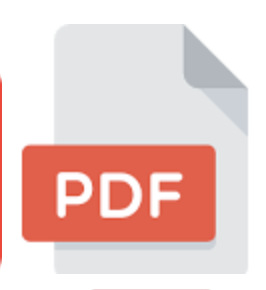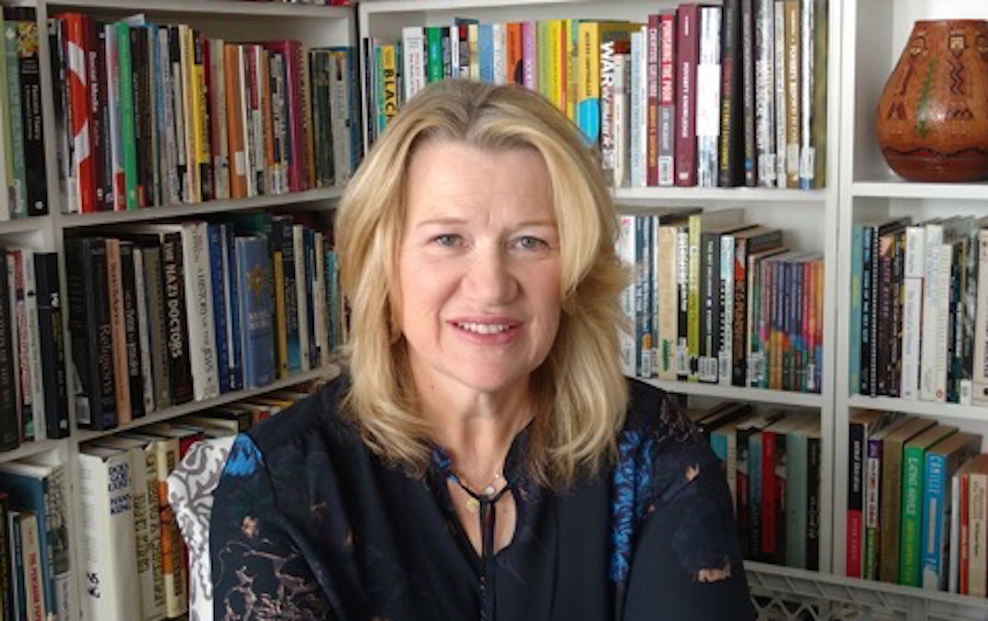[I-lluminate] Exploring the Dark Web: A Cloak for Journalists and their Sources
by Kathy Dobson

Credit: Arisirawan’s Blog
After Viktoria Marinova, a journalist with a television station in Bulgaria, was appointed host of a new current affairs show, she vowed that the show would focus on corruption and her increasing concern about the lack of journalistic freedom in her city. The first episode, which featured a story about two journalists investigating alleged corruption of EU funds, would turn out to be the last. Just hours after going for one of her regular runs along the river, Marinova’s body was discovered on a nearby path, brutally beaten, raped and murdered. Local authorities still claim a lack of evidence to suggest her murder was the result of her investigative journalism, however, as an article in The Guardian points out, Marinova’s murder “fits a pattern of violent attacks on female reporters.” And it’s not just female reporters facing violent attacks.
According to the International Federation of Journalists, we are living in an era of unprecedented levels of violence against journalists. As part of this new war on the press, repressive regimes are not only keeping close tabs on what journalists are reporting on: if they read or hear about something they do not like, they quickly target the messenger. Attacks on journalists can have a chilling effect on everyone’s freedom of expression, yet according to an article in the Washington Post, 2018 has not only been a brutal year for journalists, it’s only going to get worse. The Washington Post isn’t the first to raise the alarm with dire predictions about the safety of journalists.
At the 28th World Congress of the International Federation of Journalists in 2013, Alan Pearce said that being a journalist is now more dangerous than ever.
Reporters Without Borders (RSF) expressed similar concerns about the passing of anti-terrorism law Bill C-51 in Canada, which they argue contributes to the increasingly restrictive environment that journalists have to operate within. In a letter to Prime Minister Justin Trudeau, RSF expressed their concerns about the Bill, claiming a lack of government transparency and it being a “dark time for journalists.” RSF pointed out multiple press freedom violations in Canada, including an Ontario judge ordering a VICE NEWS reporter to turn over all communications between him and a source to the RCMP “setting a dangerous precedent that could compromise journalistic independence and the protection of sources.”
In light of increasing concerns about surveillance and the restrictions placed on journalists by both state and other actors, the dark web – that portion of the deep web that is intentionally hidden and inaccessible through regular browsers – might offer more than just a secret space for nefarious activities. In addition to cloaking those illegal activities online from prying eyes, what about those sources who put themselves at great personal risk, simply by talking to a journalist? And what about the journalists themselves? In the wake of the NSA surveillance revelations, thanks to whistleblower Edward Snowden, what about those journalists who also risk everything, including their lives, when they write about and expose governmentally misdeeds, corporate fraud, or whistleblowing about drug cartels?
Today, if a reporter researches military statistics, watches a couple of videos about explosions on YouTube, and views an extremist website for background research, he or she will be marked from then on and will no longer be able to research in privacy, or protect the anonymity of a source as all of their work as a journalist will be monitored from now on (Pearce as cited in Marshall, 2013). This is why many journalists are increasingly turning to the dark web to communicate securely with their sources, protecting their sources from governments and others who would seek to know their identity. Some of the digital tools available include methods to correspond with sources securely, and the ability to pass on secret notes and sensitive documents without fear of being exposed.
According to the Committee to Protect Journalists (CPJ), as of early October 2018, at least 43 journalists have been targeted and killed for their work. More than a dozen others have also been killed but since their deaths have yet to be officially linked to their work, they don’t count as part of the official total so far in 2018. These numbers don’t include the more than 300 journalists worldwide who have been imprisoned for their work. Each year dozens of journalists are also detained, harassed and beaten, and it’s not just repressive regimes that journalists have to worry about. Even in democratic countries, surveillance of journalists online and off is becoming increasingly commonplace.
As with any technology, anonymity can be used for a variety of means and ends, and many of those who use the dark web are using it to browse in privacy because of being in a country that doesn’t offer open access to the internet, and they want to be free of government censors (Chertoff, 2017). But given recent revelations about wide-scale nation-state monitoring of the Internet and the increasing threat to the lives of journalists and their sources, the dark web has the potential to play an increasingly critical role in contributing to a healthy democracy. Reporters Without Borders encourages the use of the dark web as part of its “survival kit” for journalists and bloggers who live in countries where they risk censorship or arrest (Murray, 2014). The dark web includes sites set up specifically for journalists to exchange files and “smuggle out important stories that portray authoritarian regimes in a negative light” (Chertoff, 2107, p 29).
Journalists will always be under threat of attacks for exposing repressive regimes and reporting on horrific stories from around the world. As some have argued, the dark net will continue to provide an increasingly important safe haven not only for those sources who risk their lives when they speak out, but also, to the very journalists whom these sources are speaking out to.
Works Cited:
Committee to Protect Journalists (CPJ). (2018). 1334 Journalists have been killed, 1992-2018. Retrieved from https://cpj.org/data/killed/?status=Killed&motiveConfirmed%5B%5D=Confirmed&type%5B%5D=Journalist&start_year=1992&end_year=2018&group_by=year
Chertoff, M. (2017). A public policy perspective of the Dark Web. Journal of Cyber Policy 13, 26-38. Retrieved from https://www.tandfonline.com/doi/abs/10.1080/23738871.2017.1298643
Con (2018). Can Journalism be Bound for the Dark Web? Darkweb News. Retrieved from https://darkwebnews.com/dark-web/can-journalism-be-bound-for-the-dark-web/
Marshall, S. (2013). How journalists can enter the ‘deep web’ to stay secure. Retrieved from https://www.journalism.co.uk/news/-wpe13-how-journalists-can-stay-secure-by-entering-the-deep-web-/s2/a554394/
Murray, A. (2014). The dark web is not just for paedophiles, drug dealers and terrorists. Independent. Retrieved from https://www.independent.co.uk/voices/comment/the-dark-web-is-not-just-for-paedophiles-drug-dealers-and-terrorists-9920667.html
Pearce, A. (2013) Tightening the Net: Be careful what you wish for. NUJ. Retrieved from https://www.nuj.org.uk/news/tightening-the-net-be-careful-what-you-wish-for/
Reporters without Borders. (2016). RSF alerts Prime Minister Trudeau of concerns about deteriorating press freedom in Canada. Retrieved from https://rsf.org/en/news/rsf-alerts-prime-minister-trudeau-concerns-about-deteriorating-press-freedom-canada
The International Federation of Journalists (2018). End Impunity – for a UN Convention to protect journalists. Retrieved from https://www.ifj.org/actions/ifj-campaigns/end-impunity-for-a-un-convention-to-protect-journalists.html
The Washington Post. (2018). 2018 has been a brutal year for journalists, and it keeps getting worse. Retrieved from https://www.washingtonpost.com/world/2018/10/09/has-been-brutal-year-journalists-it-keeps-getting-worse/
Wilson-Raybould, J. Bill C-51. Retrieved from https://openparliament.ca/bills/42-1/C-51/


Kathy Dobson
- Senior Research Fellow